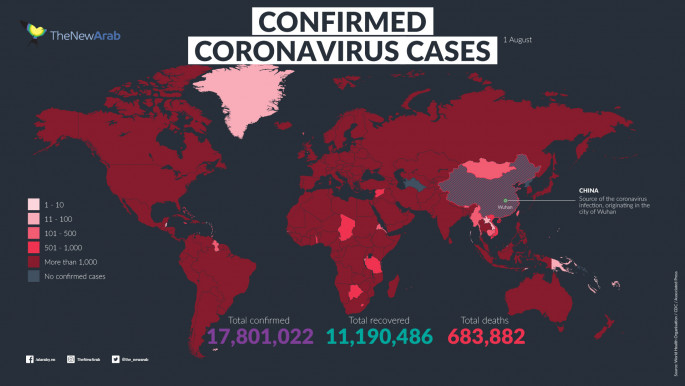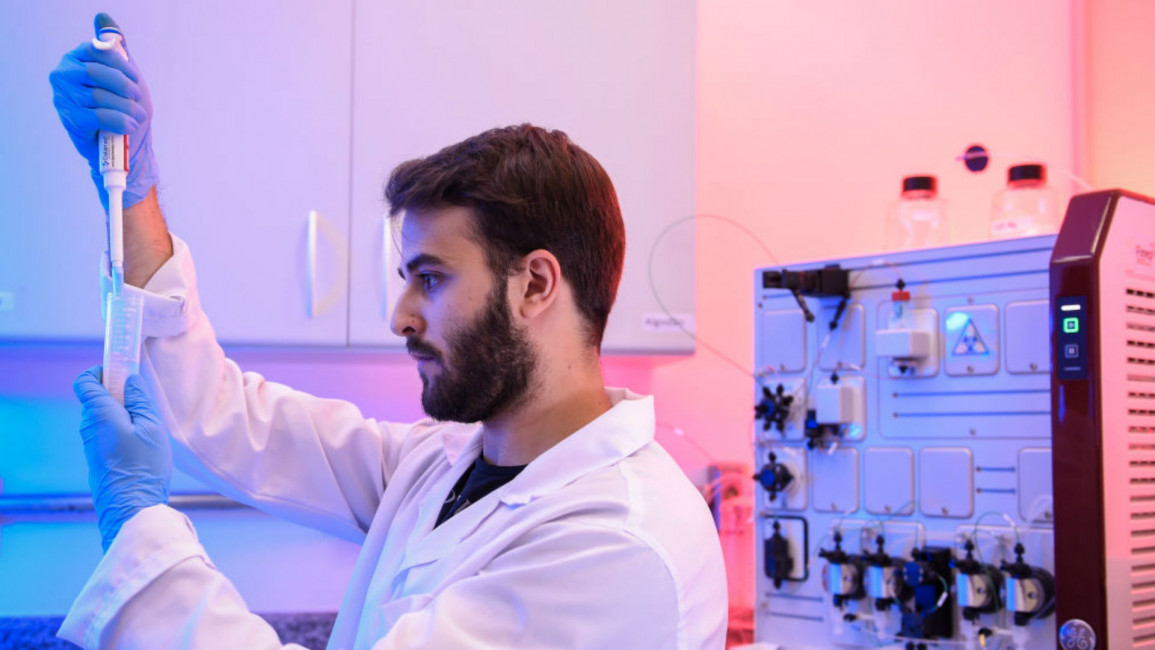
How to develop a Covid-19 vaccine for all
In the early weeks of 2020, it started to dawn on people that Covid-19 could be the long-dreaded but expected "Disease X" - a global pandemic caused by an unknown virus.
Three months later, the majority of the world's population is in lockdown, and it is clear that we are only as healthy as our neighbours - locally, nationally, and internationally.
Strong health systems, adequate testing capacity, and an effective, universally available vaccine will be key to protecting societies from Covid-19. But ensuring that no one is left behind requires not just unprecedented collective investment, but also a very different approach.
Researchers at universities and companies around the world are racing to develop a vaccine. And current progress is encouraging: 73 vaccine candidates are actively being explored or are in preclinical development, while five already have entered clinical trials.
These massive efforts are possible only because of substantial public investment, including by the US National Institutes of Health and the Coalition for Epidemic Preparedness Innovations (CEPI). The latter, a publicly funded non-profit organisation, was established after the 2014-16 West African Ebola epidemic to drive research and development of vaccines that could be deployed during disease outbreaks.
CEPI has so far received an extra $765 million of a targeted $2 billion in funding for Covid-19 vaccine development from multiple governments. The Biomedical Advanced Research and Development Authority, part of the US Department of Health and Human Services, has invested substantially in vaccine-development projects with Johnson & Johnson ($450 million) and Moderna ($483 million). And the European Union intends to mobilize further public funding to tackle the pandemic at an online pledging conference on 4 May.
 |
The entire vaccine-innovation process must be governed by clear and transparent rules of engagement based on public-interest goals and metrics |  |
But investment alone is not enough. To succeed, the entire vaccine-innovation process, from R&D to access, must be governed by clear and transparent rules of engagement based on public-interest goals and metrics. That, in turn, will require a clear alignment between global and national public interests.
The first, critical step is to adopt a mission-oriented approach that focuses both public and private investments on achieving a clearly defined common goal: developing an effective Covid-19 vaccine(s) that can be produced at global scale rapidly and made universally available for free.
Realizing this aim will require firm rules regarding intellectual property (IP), pricing, and manufacturing, designed and enforced in ways that value international collaboration and solidarity, rather than competition between countries.
 |
|
| [Click to enlarge] |
Second, to maximize the impact on public health, the innovation ecosystem must be steered to use collective intelligence to accelerate advances. Science and medical innovation thrives and progresses when researchers exchange and share knowledge openly, enabling them to build upon one another's successes and failures in real time.
But today's proprietary science does not follow that model. Instead, it promotes secretive competition, prioritises regulatory approval in wealthy countries over wide availability and global public-health impact, and erects barriers to technological diffusion. And, although voluntary IP pools like the one that Costa Rica has proposed to the World Health Organization can be helpful, they risk being ineffective as long as private, for-profit companies are allowed to retain control over critical technologies and data - even when these were generated with public investments.
Read more: The Middle East at war with coronavirus: Top stories from 29 April
Moreover, collective steering is vital in order to select and pursue the most promising potential vaccines. Otherwise, marketing authorisation may go to the best-resourced candidate rather than the most suitable one.
Third, countries must take the lead in building and buttressing manufacturing capabilities, particularly in the developing world. While an effective Covid-19 vaccine probably will not be available for another 12-18 months, a concerted effort is needed now to put in place the public and private capacity and infrastructure needed to produce rapidly the billions of doses that will be required.
Because we don't know yet which vaccine will prove most effective, we may need to invest in a range of assets and technologies. This poses a technological and financial risk that can be overcome only with the help of entrepreneurial states backed by collective, public-interest-driven financing, such as from national and regional development banks, the World Bank, and philanthropic foundations.
Finally, conditions for ensuring global, equitable, and affordable access must be built into any vaccine-development programme from the start. This would allow public investments to be structured less like a handout or simple market-fixer, and more like a proactive market-shaper, driven by public objectives.
 |
Developing an effective and universally available COVID-19 vaccine is one of the most critical missions of our lifetime |  |
Pricing of Covid-19 vaccines should reflect both the substantial public contribution to their development and the urgency and magnitude of the global health crisis. We must go beyond statements of principle and generic pledges, and introduce concrete conditions that enable vaccines to be free at the point of use. Policymakers should also consider using compulsory licensing to allow countries to make the best use of the available tools and technologies.
Crucially, we need collective procurement mechanisms that ensure fair allocation and equitable global access to the new vaccines as they become available. The overriding goal must be to prevent advanced economies from monopolising the global supply or crowding out demand from poorer countries.
The Covid-19 crisis rules out a business-as-usual approach. As countries mobilise collectively against the pandemic through calls for a global alliance, pledging conferences, G20 meetings, and the upcoming annual World Health Assembly, we cannot afford to miss this chance.
These collective efforts must include clear and enforceable rules of engagement that commit all partners to an end-to-end approach to health innovation based on the public interest: an effective Covid-19 vaccine that can be rapidly made available to all for free.
Developing an effective and universally available COVID-19 vaccine is one of the most critical missions of our lifetime. Above all, it is a litmus test of whether global public-private cooperation, touted by policymakers as the key to success, will maximise the supply of public goods or the share of private profits.
Mariana Mazzucato, Professor of Economics of Innovation and Public Value and Director of the UCL Institute for Innovation and Public Purpose, is the author of The Value of Everything: Making and Taking in the Global Economy. Follow her on Twitter: @MazzucatoM
Els Torreele is Executive Director of the Medecins Sans Frontieres Access Campaign. Follow her on Twitter: @ElsTorreele
This article was originally published by Project Syndicate.
Copyright: Project Syndicate, 2020.
Opinions expressed in this article remain those of the author and do not necessarily represent those of The New Arab, its editorial board or staff.



